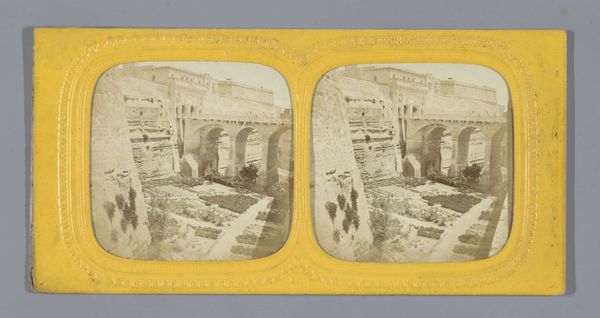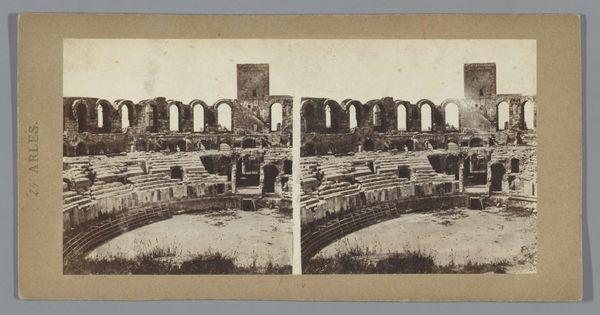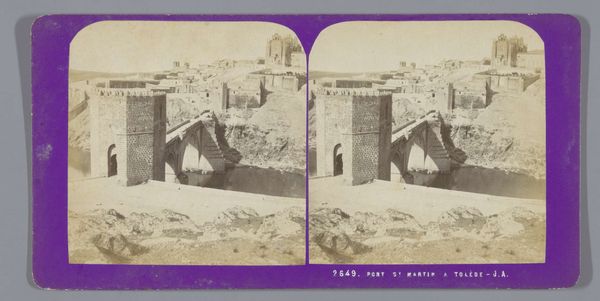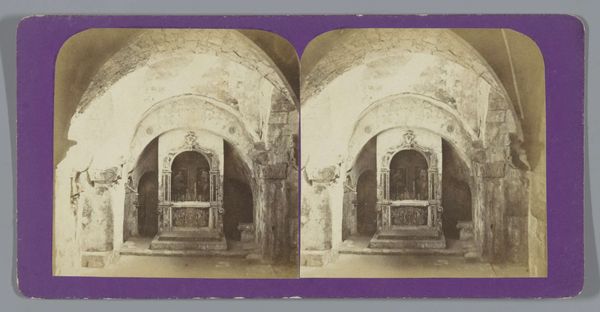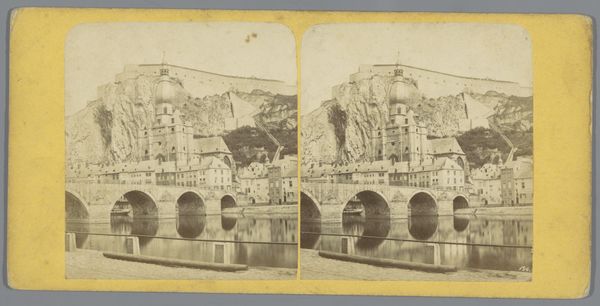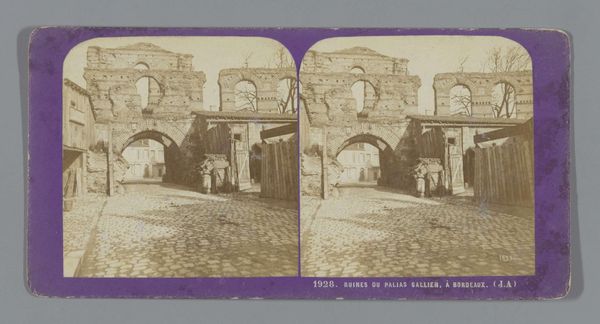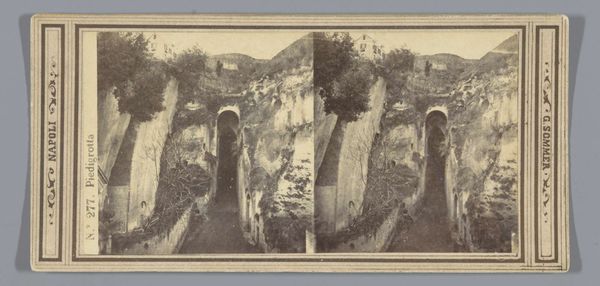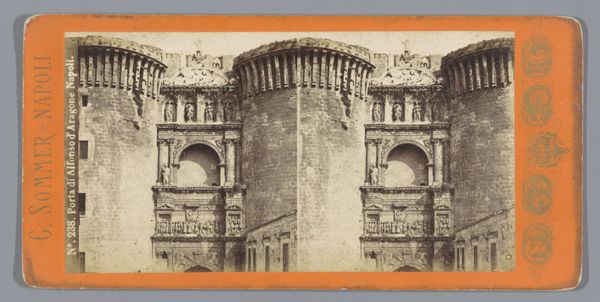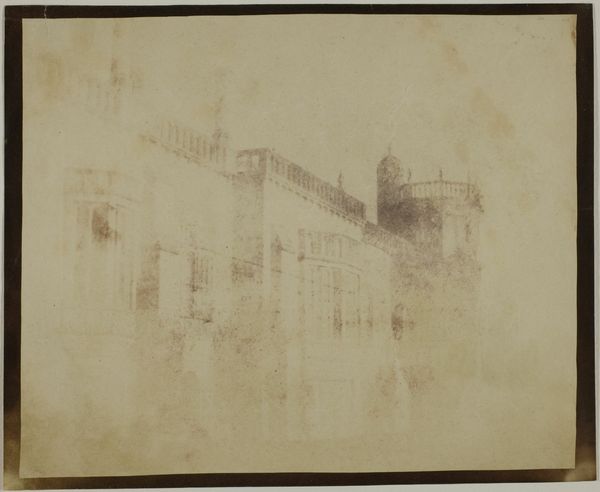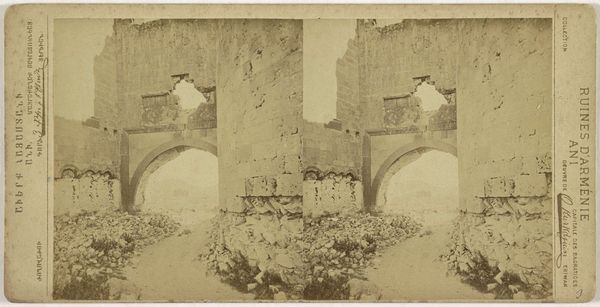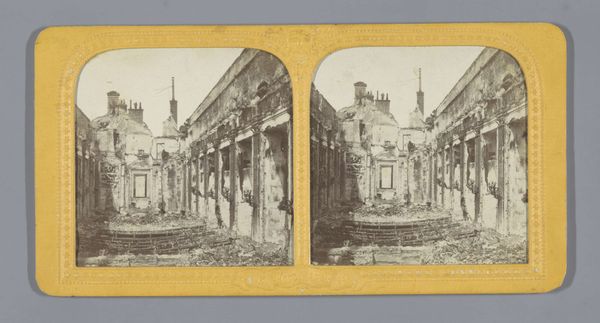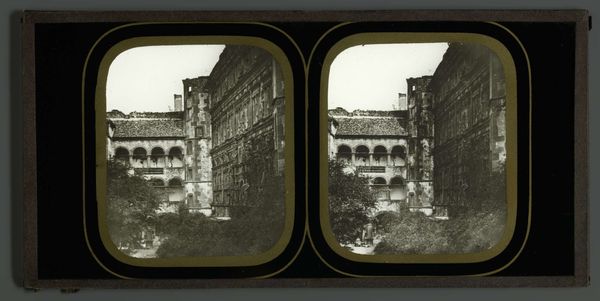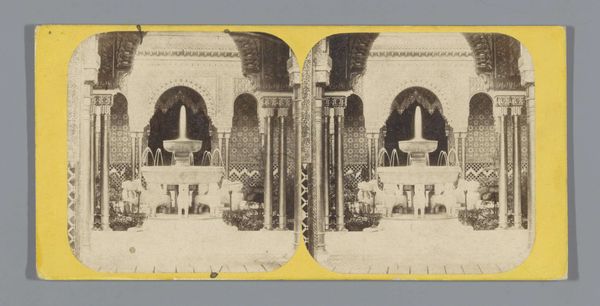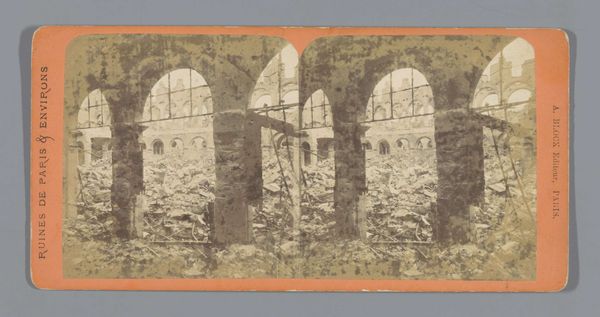
photography, albumen-print
#
landscape
#
photography
#
coloured pencil
#
orientalism
#
albumen-print
Dimensions: height 87 mm, width 172 mm
Copyright: Rijks Museum: Open Domain
This stereoscopic photograph, “Poort in Tunis,” captures a gateway in Tunis, Tunisia. Although the artist is unknown, its existence speaks volumes about the burgeoning visual culture of the 19th century. The photograph invites us to consider the history of Tunisia as a site of cultural exchange, bridging the Arab world with Europe. During this period, Tunisia was under French influence, and photography served as a tool for European powers to document and, in a sense, possess the landscapes and architecture of colonized territories. The choice of the gate as a subject raises questions about access, control, and the representation of foreign lands to a European audience. Was it made for Western consumption? To fully understand this photograph, we can research the history of Tunisia under French rule. By studying the cultural and political context, and also by looking at photography's institutional history, we can reveal the complex layers of meaning embedded in this seemingly simple image.
Comments
No comments
Be the first to comment and join the conversation on the ultimate creative platform.
